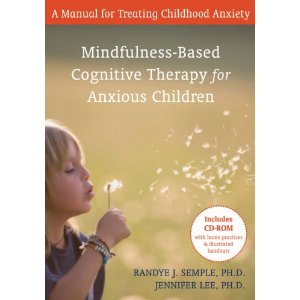Making Happiness a Habit through Mindfulness
What if happiness was a habit that we could teach children? We can. Qualities that lead away from happiness (strong negative emotions) and qualities that lead toward happiness (ethical actions) are all rooted in habits developed in the past. Mindfulness helps children and teens recognize the habits that lead to happiness and break the ones that don't.

 Char Wilkins, MSW, LCSW
Char Wilkins, MSW, LCSW Pre-order Mindfulness-Based Cognitive Therapy for Anxious Children
Pre-order Mindfulness-Based Cognitive Therapy for Anxious Children
